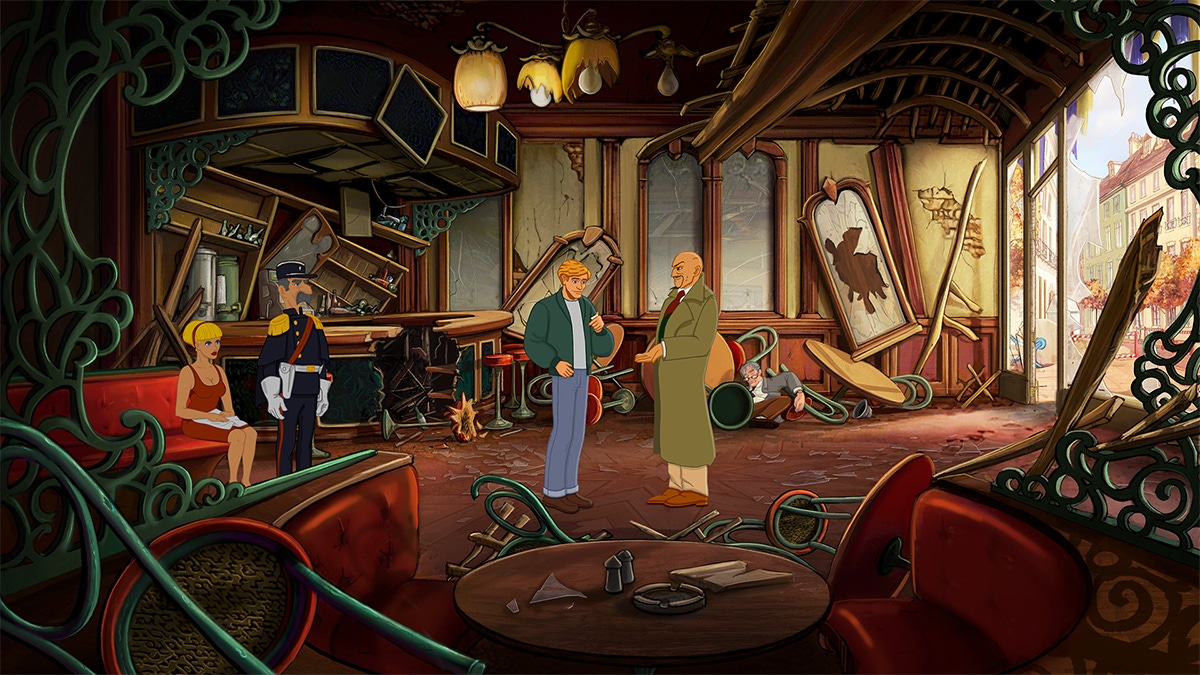Broken Sword designer Charles Cecil says criticism of bespoke AI tool is "frankly ludicrous"
"I am going to defend to the heavens the fact that AI is able to do most of this work, and then a human gets involved and brings in their creativity."

Broken Sword co-creator Charles Cecil says it's "frankly ludicrous" that Revolution Software's decision to use a custom-made AI tool to help upscale old pixel artwork could ever be considered controversial.
Speaking to Cecil at Gamescom 2023, we asked the point-and-click veteran to break down how Revolution is using AI to assist with the development of Broken Sword: Shadow of the Templars – Reforged, a reimagining of the original 1996 adventure.
The studio had previously spoken about the technique to Polygon, prompting some on social media to decry its use of AI. For Cecil, however, it's important to draw a distinction between generative AI tools like ChatGPT and DALL-E and the one Revolution helped create.
Explaining why Revolution turned to AI in the first place, he recalls how, back when the original title was in development, the studio hired a cel artist called Geraldine to hand-trace images as they came in and then use a fill tool to add colour and create the images players saw in-game.
Cecil praised Geraldine's brilliance because, although her role was crucial, she was ultimately being asked to perform a "mindless job" over and over again. For Reforged, Revolution sought to eliminate that "drudgery" by getting its animators to teach an AI tool how to perform that task using its own data.
Cecil says Revolution worked with the University of York to create the tool, and reiterated the studio owns every morsel of data it can access. After teaching the AI to handle what's clearly viewed as an incredibly repetitive job, Cecil says Revolution's animators can unleash their creativity.
"I am going to defend to the heavens the fact that AI is able to do most of this work, and then a human gets involved and brings in their creativity. We have human artists using their creative talents to create facial expressions, correct animations, and finesse the details, but the base work is no longer needed," he says.
Cecil says AI shoulders the drudgery so artists can shine
The veteran designer recalls how, back in the '90s, Geraldine would've had to work on around 30,000 sprites during production, and suggests her time would have been better spent on tasks that required a "human touch." As a creative, Cecil says he understands the concerns surrounding AI usage, and believes many of them are absolutely legitimate. But he's also adamant that it has a place in modern development when used to amplify creativity.
"A criticism of our AI is absolutely unfounded. Because we're using our own data. We have super talented artists working away and doing something special. What we're doing is using this as a tool to eliminate the drudgery of a job that somebody back in the day had to do," he says.
"Then again, you've got some AI tools practically stealing other people's property, particularly in the graphics field. And that's a real concern. But we're employing a wonderful group of artists who are working in the 2D domain and have made this [4K reimagining] possible."
By saving time, Cecil says Revolution has also saved money. He explains that dragging each sprite into the 21st Century might've taken an hour by hand, but with the help of AI it takes about 10 minutes. "What's happening is the AI is laying the foundations, but then our artists are adding their own touches, maybe tweaking a character's hair or changing their expression.
"That costs about 20 percent of what it would do without AI. So, of course that's a consideration, but it's also about eliminating drudgery. To put this tool into the same category of some others is frankly ludicrous."
About the Author(s)
You May Also Like







.jpeg?width=700&auto=webp&quality=80&disable=upscale)








